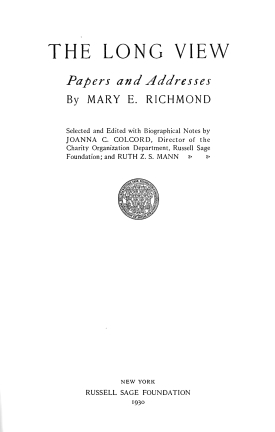Dondero and Altman will investigate how U.S. immigration policy and enforcement shape immigrant attachments to social, economic, and political institutions. By examining immigrant attachments to surveilling institutions such as the financial, healthcare, and public assistance systems, and non-surveilling institutions such as religious, civic, or service organizations they will test the hypothesis that restrictive policy and enforcement climates lead to less engagement with U.S. institutions.
Sociologist Colleen Heflin will document trends, patterns, and correlates of food insecurity among adults aged 60 or older who have incomes below 130 percent of the federal poverty line. She will analyze data from the Current Population Survey (CPS), the Survey of Income and Program Participation (SIPP), and the Health and Retirement Survey (HRS). In addition, IRS data on charitable organizations will document the geographic distribution of home delivered meals, senior feeding sites, senior centers, food pantries and soup kitchens.
In 2017, nearly 8 percent of those aged 60 and older were food insecure, more than double the same measure in 2001, and research has not fully addressed the underlying dynamics of food insecurity in old age. Sociologist Madonna Harrington Meyer will conduct in-depth interviews with 60 people aged 60 or older with incomes below 130 percent of the federal poverty line. She will interview 30 adults who are food insecure and 30 who are not.
Employment discrimination based on applicants’ gender, race, age, or other traits is well documented, but the extent to which discrimination depends on specific job demands—the bundle of qualifications, skills, and expectations—remains unclear. Sociologists Katherine Weisshaar and Koji Chavez will examine the extent to which gender and racial discrimination vary across job demands and whether employers are more likely to discriminate against women or Black applicants when they do not meet a job’s required demands.
Most research on the future of work relies on government survey data, which can identify economy-wide trends. But surveys lack detail about tasks and occupations that can reveal changes in how work is organized. Sociologists Siwei Cheng and Michael Hout will examine the nature of occupations, including the variation within categories and the connections across categories, to better understand how jobs organize tasks and coalesce into occupations. They will also investigate how occupations, in turn, function as signals of skills, tasks, opportunities for advancement, and job quality.
Sociologists Irene Browne and Natalie Deckard will examine how middle class Mexican and Dominican authorized immigrants are navigating opportunities and barriers generated by President Trump’s immigration policies and rhetoric. Through re-interviews with 30 respondents (15 Mexicans and 15 Dominicans) first interviewed between 2009 and 2015 as part of a National Science Foundation study of immigrants in Atlanta, Browne and Deckard will investigate the degree to which legal status and professional credentials may lead middle class Latino immigrants to distance themselves from
Naturalized U.S. citizenship guarantees immigrants nearly all the legal rights and privileges afforded to the U.S.-born in ways not available to the 22.3 million immigrants who are not citizens. However, federal immigration enforcement subjects a small number of naturalized citizens to denaturalization, which would make them vulnerable to deportation. Sociologist Asad Asad will examine denaturalization—the process of removing an immigrant’s acquired citizenship and severing their juridical rights and undermining their long-term presence in the country.
Legal status is central to understanding the process of immigrant incorporation into the U.S., yet our understanding of how legal status affects labor market outcomes is limited, in part because of data deficiencies. A multi-disciplinary research team led by Mexican economist Graciela Teruel proposes to build on a unique representative panel study of Mexicans who migrated to the U.S. after 2002, the Mexican Family Life Survey (MxFLS). In the baseline survey, adults from about 8,400 households in 150 Mexican communities were interviewed.
About This Book
A selection from the papers written by Mary E. Richmond, edited with biographical notes by Joanna C. Colcord, director of the Charity Organization Department, Russell Sage Foundation, and Ruth Z.S. Mann.
MARY E. RICHMOND was director of the Charity Organization Department at the Russell Sage Foundation.
Download
RSF Journal
View Book Series
Sign Up For Our Mailing List
Apply For Funding
Pagination
- Previous page
- Page 25
- Next page

